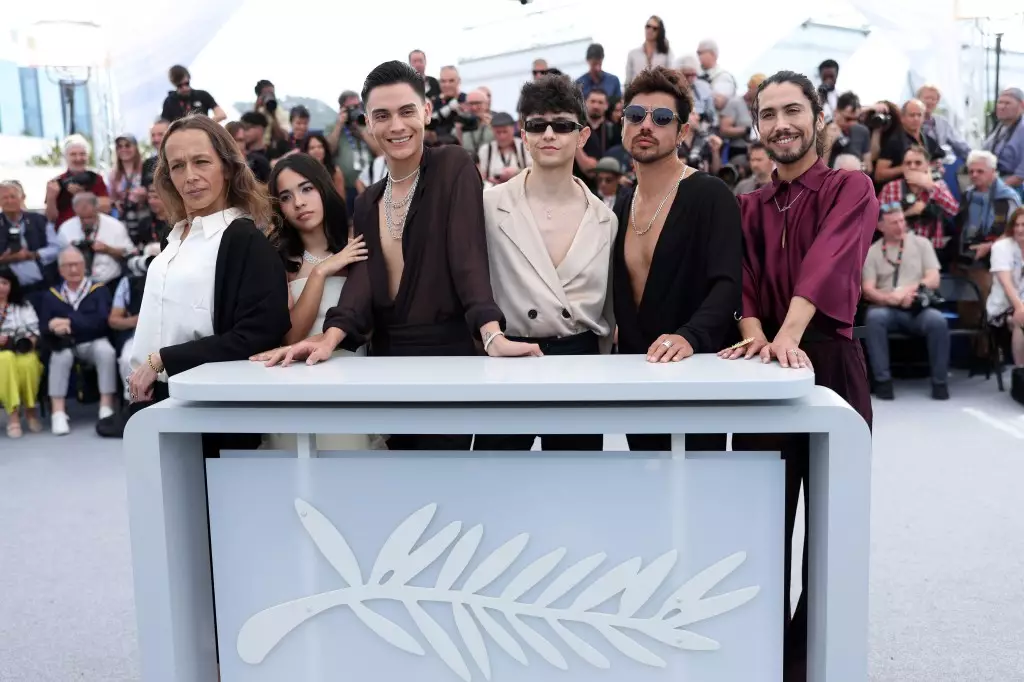The Cannes Film Festival has long served as a potent platform for storytelling that transcends borders. This year, the cinematic gem “The Mysterious Gaze of the Flamingo,” directed by Diego Céspedes, echoes through the festival halls, securing the coveted Un Certain Regard Prize. With its poignant narrative set against the backdrop of northern Chile in 1982, the film presents a raw exploration of human emotion, identity, and the complexities that arise in the face of unfounded fear.
At the center of this film is eleven-year-old Lidia, who navigates life with her vibrant queer family in a desert mining town as a mysterious and deadly disease engulfs their world. The lore that this sickness is transmitted through the gaze of two men in love offers a compelling narrative device. It not only fuels the community’s mounting paranoia but also serves as a poignant metaphor for love itself—a force that, despite its purity, is often ensnared in societal judgment. Céspedes effectively captures the essence of youth grappling with existential dilemmas, making “The Mysterious Gaze of the Flamingo” a profound reflection on love, fear, and resilience in a community shaped by stigma.
Contrasting Shadows and Light
Colombian filmmaker Simón Mesa Soto’s “A Poet” also made waves at the festival, earning the Jury Prize for its rich character study of Oscar Restrepo, a once-promising poet now lost in the clichés of his art form. This film invites audiences to ponder the duality of inspiration and frustration, showcasing Oscar’s bittersweet relationship with poetry. When he meets Yurlady, a talented young girl from humble beginnings, the film exposes the fine line between mentorship and manipulation. Soto deftly highlights the burden of inclusivity and the weight of legacy in the creative world—questions that resonate deeply in our modern cultural landscape.
Emerging Voices in Filmmaking
The festival’s recognition of emerging talent is further underscored by the debut of British filmmaker Harry Lighton’s “Pillion,” which took home the Best Screenplay award. Through the lens of Colin, a young gay man discovering his sexuality under the influence of the confident biker Ray, Lighton explores themes of vulnerability and submission. The film’s intimate portrayal of awakening desire juxtaposes the notion of freedom with the complexities of dominance and submission.
In an impressive display of directorial prowess, the Best Director award went to Palestinian duo Tarzan and Arab Nasser for their work “Once Upon a Time in Gaza.” Their ability to weave storytelling with sociopolitical commentary offers insight into the tumultuous conditions faced by their homeland, reminding audiences of cinema’s power to foster dialogue and understanding.
Celebrating Individual Triumphs
The festival also honored individual performances that captivated the jury and audiences alike. Cléo Diara’s compelling role in “I Only Rest in the Storm” and Frank Dillane’s nuanced portrayal in “Urchin,” directed by Harris Dickinson, serve as testaments to the transformative nature of acting and its capability to evoke empathy. The diverse jury, led by Molly Manning Walker, selected entries that boldly challenged norms and elevated voices often overlooked in mainstream cinema.
This year’s Cannes Film Festival has illuminated the intricate bond between narrative art and the personal experiences that fuel it. From confrontational tales of love to poignant reflections on identity and societal challenges, these films are not merely stories to be observed—they are calls to introspection and understanding in a world that yearns for connection.


Leave a Reply